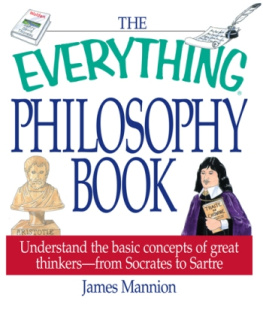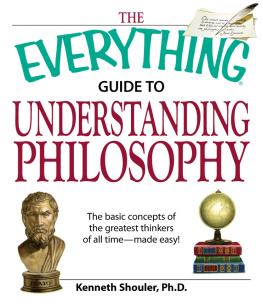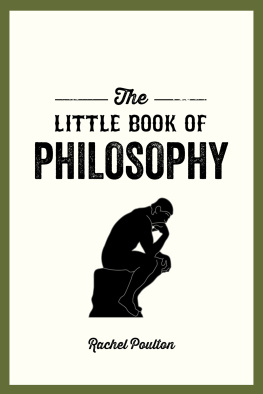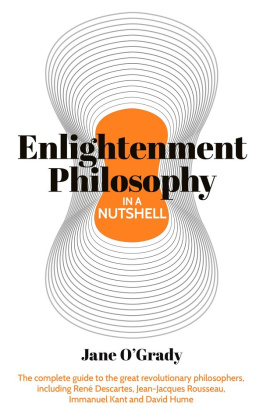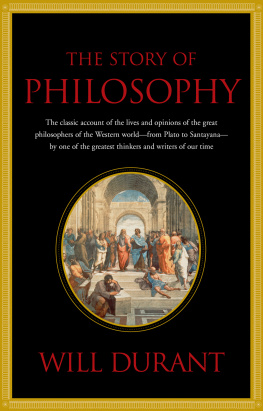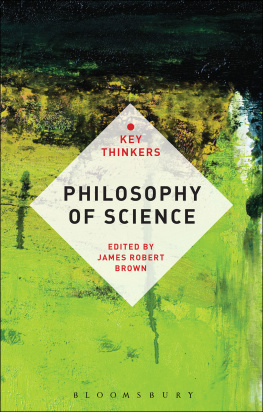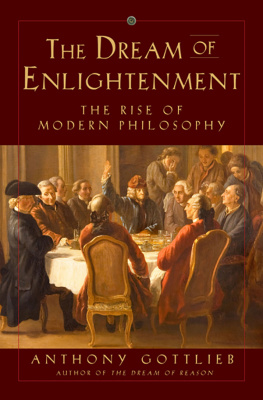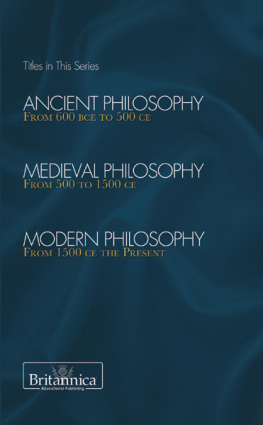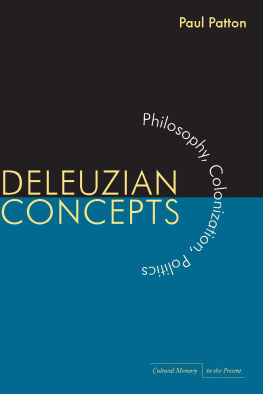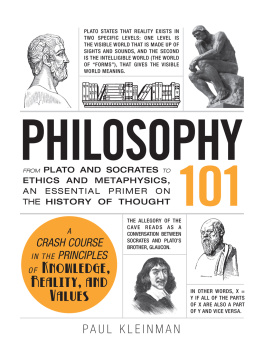
THE EVERYTHING PHILOSOPHY BOOK
Understand the basic concepts of great thinkers from Socrates to Sartre
James Mannion

Copyright 2002, F+W Publications, Inc.
All rights reserved. This book, or parts thereof, may not be reproduced in any form without permission from the publisher; exceptions are made for brief excerpts used in published reviews.
An Everything Series Book. Everything and everything.com are registered trademarks of F+W Publications, Inc.
Published by Adams Media, an imprint of Simon & Schuster, Inc. 57 Littlefield Street, Avon, MA 02322 U.S.A. www.adamsmedia.com
ISBN 13: 978-1-58062-644-6 (paperback)
ISBN 13: 978-1-60550-576-3 (EPUB)
ISBN 10: 1-58062-644-0
Printed in the United States of America.
J I H G F E D
Library of Congress Cataloging-in-Publication Data
Mannion, James.
The everything philosophy book: understanding the basic concepts of great thinkers from Socrates to Sartre / by James Mannion.
p. cm. (An everything series book)
Includes index.
ISBN 1-58062-644-0
1. Philosophy Introductions. 2. Religion Philosophy. I. Title. II.
BD21 .M25 2002
100 dc21
2002003934
This publication is designed to provide accurate and authoritative information with regard to the subject matter covered. It is sold with the understanding that the publisher is not engaged in rendering legal, accounting, or other professional advice. If legal advice or other expert assistance is required, the services of a competent professional person should be sought.
From a Declaration of Principles jointly adopted by a Committee of the American Bar Association and a Committee of Publishers and Associations
Illustrations by Barry Littmann.
This book is available at quantity discounts for bulk purchases. For information, call 1-800-289-0963.
Visit the entire Everything series at www.everything.com
| EDITORIAL | PRODUCTION |
|---|
| Publishing Director: Gary M. Krebs | Production Director: Susan Beale |
| Managing Editor: Kate McBride | Production Manager: Michelle Roy Kelly |
| Copy Chief: Laura MacLaughlin | Series Designer: Daria Perreault |
| Acquisitions Editor: Allison Carpenter Yoder | Layout and Graphics: Brooke Camfield, Colleen Cunningham, Michelle Roy Kelly, Daria Perreault |
| Development Editor: Kelly Ewing |
THE Series!
Dear Reader:
What you hold in your hands is clearly not an encyclopedia. Encyclopedia-sized histories of philosophy do exist. Weighty in more ways than one, they are also often most effective as sleep aids.
The EverythingPhilosophy Book is an introduction that covers the cast of characters and schools of thought that have shaped the way we look at the world. These people have asked the musical question What's it all about? and arrived at myriad conclusions. Some ideas may resonate with you; others may seem bizarre, if not downright comical. Recall the old adage that the only stupid question is the one that remains unasked. Herein I present history's Great Questioners.
It's a Philosophy 101 course without the hefty per-credit fee. But unlike a dry academic affair that would leave you alternately agitated and somnolent, I hope you find this tome to be humorous and entertaining as well as informative.
Descartes changed the world when he said, I think, therefore I am. To paraphrase one of the many masters you will find between the covers of this modest primer, may I say, You read, therefore I eat. So, dear reader, buy this book!
Sincerely,
Welcome to the EVERYTHING series!
These handy, accessible books give you all you need to tackle a difficult project, gain a new hobby, comprehend a fascinating topic, prepare for an exam, or even brush up on something you learned back in school but have since forgotten.
You can read an EVERYTHING book from cover-to-cover or just pick out the information you want from our four useful boxes: e-facts, e-ssentials, e-alerts, and e-questions. We literally give you everything you need to know on the subject, but throw in a lot of fun stuff along the way, too.
We now have well over 100 EVERYTHING books in print, spanning such wide-ranging topics as weddings, pregnancy, wine, learning guitar, one-pot cooking, managing people, and so much more. When you're done reading them all, you can finally say you know EVERYTHING!

Important sound bytes of information

Quick handy tips

Urgent warnings

Solutions to common problems
Introduction: What's It All About?
Those familiar with the opening scenes of Stanley Kubrick's 2001: A Space Odyssey know that for eons, mankind was just another player scratching for survival in a cruel primordial ecosystem, living and dying instinctually in the unrelenting circle of life. Humans were apelike hominids, foraging for food and warring with rival packs. Suffice it to say, there were no philosophers in that crowd. Or were there?
Neanderthal Man (and woman) was the Big Kahuna from about 200,000 B. C.40,000 B.C. Neanderthals were, until very recently, perceived as the stereotypical cavemen from the movies, bedecked in fur, sporting the proverbial big stick, and only able to counter a Socratic query with an insouciant Ugh! Yet there was much more to these heavy-browed ancestors than heretofore known.
Recent archeological findings indicate that the Neanderthals comprised a complex culture. Ancient burial sites reveal that ceremonies were performed, and that these rituals included floral arrangements and the placement of the body in a fetal position. These rituals clearly indicate a faith of some kind and a regard for fallen comrades and loved ones. In the animal kingdom, a body is simply left to decompose. For millions of years, human descendents did the same thing. Yet somewhere along the line, this tradition changed. Mankind had developed a sense of spirituality and an appreciation of the mysteries of life.
Around 10,000 B.C., the wandering hunter-gatherers started to settle down in communities. They began to plant crops and domesticate livestock. It was in these ancient civilizations that man's first forays into mathematics, astronomy, and the written word began. Within these communities, social classes developed. Agriculture and animal husbandry allowed for the gradual development of leisure time. This free time was certainly not an idolatry of indolence theirs was, by today's standards, still a struggle fraught with dangers. Yet with this chance to stop and smell the roses, as it were, philosophizing naturally followed. Leisure time was not filled with Sony PlayStations and cyberchat rooms. People thought and probed, and the human mind continued to expand and grow.
Ancient man's attempt to explain the world and his place in it took the form of what you might consider primitive superstition, but everything old is new age again. As you venture forth into the new millennium, you may find that the wisdom of the ancients was no mere mumbo-jumbo. Closeness to, and a reverence for, nature are sadly missed in the modern age. The gods, each with their singular characteristics and foibles, are archetypes of human personalities. And the fact that gods from divergent cultures are so similar indicates that they sprang from the depths of the human psyche; the kingdom of the gods was within.

